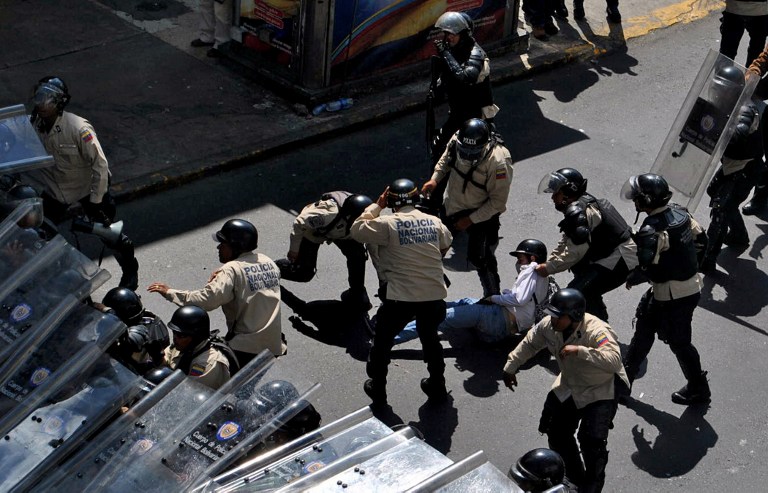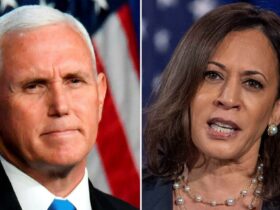
Venezuela’s recent downward spiral illustrates the profound economic and political effects oil price fluctuations have on the world’s oil-producing countries. Venezuela’s economic crisis continues to go from bad to worse. The Venezuelan Bolivarian socialist economy has collapsed from a fatal collision of low oil prices and poor economic policy. The result is economic chaos, from rampant inflation to import fraud to shortages of basic consumer necessities. As the economy plummets, political unrest builds in Venezuela.
Current president Nicolas Maduro, Hugo Chavez’s handpicked successor, has sought to continue the Chavez socialist dream and align himself squarely with the revolutionary leader’s popularity and charisma. However, as falling oil prices have made government spending (especially spending on major social programs) unsustainable and destroyed the economy, Maduro has been confronted with the failure of his political vision. He has turned to attacks on political opposition to appear strong and United States-bashing and conspiracy theories to distract his people—for example, claiming that, “there’s a world campaign against Venezuela.” Recovery for Venezuela will not come easily or at all as long as sound economic policy comes second to rhetoric, and the nation’s economic and political instability will have implications for both South America and the United States’ interests in the region.
The drop in oil prices dented the economies of many oil-producing countries around the world and had an especially significant effect on highly oil-dependent economies like Venezuela. Oil is Venezuela’s economy—Venezuela’s petroleum revenues account for about 50% of the country’s GDP and contribute more than 95% of the country’s hard currency income. It has been estimated that President Maduro’s government will require oil prices of about $117 a barrel in 2015 just to break even with government spending. As oil prices hover around $60, the economy faces a fiscal chasm.
The revenue-budget gap has been made much, much worse by historically poor economic policy. For example, strict currency controls (including an overvalued, three-tiered dollar-to-bolivar exchange rate) along with a heavily import-reliant economy have fueled a raging currency black market, incentivized fraudulent imports and created shortages of essential consumer goods like food and medicine. These extreme shortages have been created by several factors including a lack of diversified domestic production, price controls and scarce funds with which to pay for imports. The scarceness of consumer goods has truly brought the economic crisis home for ordinary Venezuelans who frequently must do without or wait in extremely long shopping lines. In February, Venezuelan officials at last announced and began to implement a plan to tackle one major political roadblock and retool currency controls—but this change may well be too little, too late.
Meanwhile, the economic crash has evolved into political instability, with massive street protests rocking Caracas since February 2014. Protestors, mainly students, have focused on social and economic problems like the collapsing economy and shortages of basic necessities. Although protest-associated violence seems to have peaked in early 2014, the causes of Venezuelan instability have not been addressed; Venezuela’s economy remains dire, Maduro’s approval ratings are around 25%, and the fairly recent imprisonment of well-known opposition leaders such as the mayor of Caracas has amplified public outrage. Smaller protests and demonstrations continue to occur and the country teeters on the brink of fresh unrest, while political opposition groups and leaders remain highly visible and vocal. Maduro does not fully control the media or public political debate, and will likely continue to face noisy opposition and low approval ratings.
Distract, deny and blame has been Maduro’s chosen response to political upheaval—Maduro has become a bit of a conspiracy theorist, claiming that the imperialist US government is plotting a coup against him, creating artificial instability and threatening Venezuela’s statehood. The Obama administration’s first major response was a March Executive Order that declared Venezuela a national security threat and placed sanctions on seven Venezuelan officials accused of corruption and violating human rights. Maduro sought to make political hay out of this move via noisily aggrieved measures such as starting a 10-million signature petition drive (to be presented to President Obama at April’s Summit of the Americas) and banning several US diplomats from the country, saying, “They can’t come to Venezuela because they are terrorists”. Such scapegoating techniques have neither significantly improved his domestic approval ratings nor done anything at all to address the real economic, political and social problems Venezuela faces. Meanwhile, Maduro has sought to enhance his personal power, winning expanded decree powers in the name of “anti-imperialism” in the face of supposed US aggression.
Venezuela is in the midst of a storm of economic disaster and political turmoil, made much worse by falling oil prices but inseparable from corruption, deceit and mismanagement in politics. As President Maduro fails to implement substantive political and social reforms or practical solutions to the country’s economic problems, Venezuela will remain a domestically unsteady and destabilizing force in South America. The United States will also remain closely involved as Maduro works to dodge blame and incriminate US “imperialism”, and as the US tries to achieve policy objectives in proximate countries, such as attempting to normalize relations with Cuba. Of all of the world’s petro economies dented by the oil price dive, Venezuela has fallen fastest, loudest and hardest because, in Venezuela, instability runs deeper than oil. President Maduro’s Chavez-socialist policies and interest in building personal power have historically trumped realistic economic policy. Venezuela today combines this problem of governance with collapsed oil prices—economic chaos and political unrest has been and will continue to be the result.
The views expressed by the author do not necessarily reflect those of the Glimpse from the Globe staff, editors, or governors.






